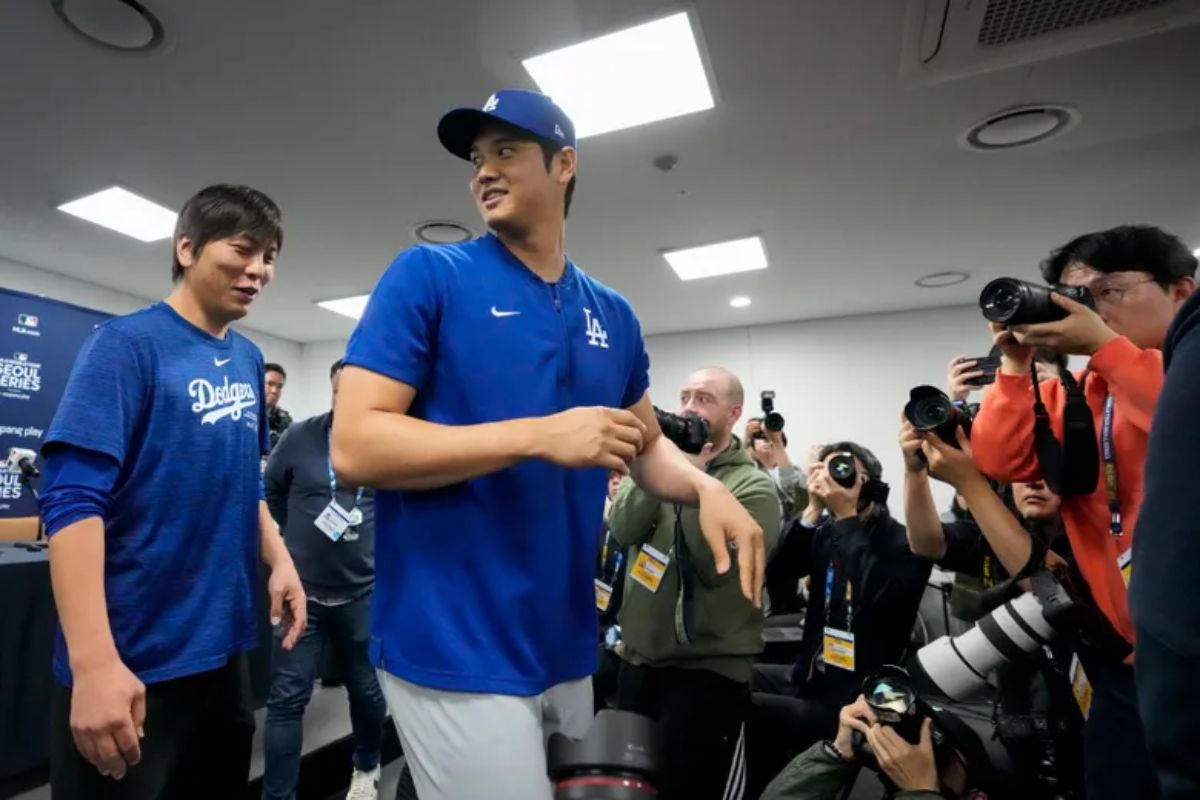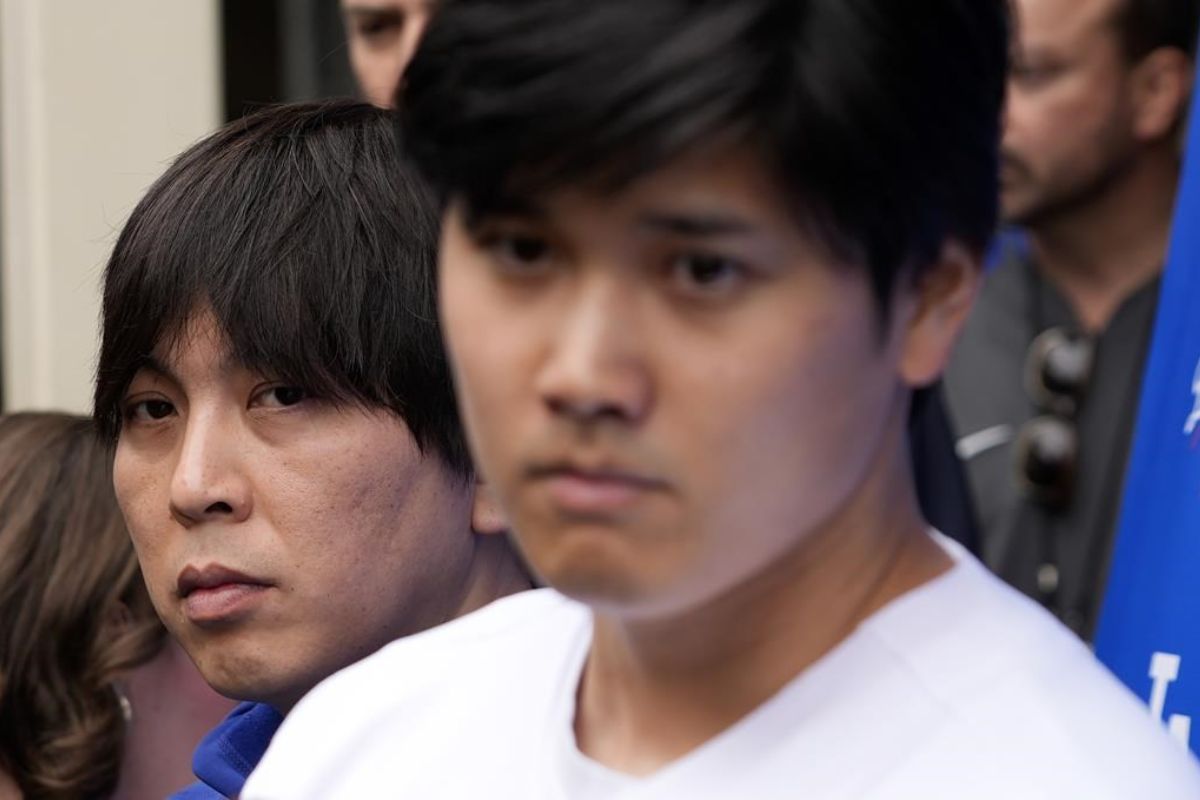California Sports Betting Ban Exposed: California’s sports betting ban intertwines with the firing of Shohei Ohtani’s interpreter, Ippei Mizuhara, over alleged gambling ties. This exposes the complex legal landscape and regulatory hurdles behind the state’s stance. Mizuhara’s termination sparked discussions on California’s gambling regulations and oversight mechanisms. The evolving investigation reveals conflicting statements and uncertainties surrounding illegal gambling allegations. Mizuhara case serves as a reminder of the risks associated with illicit gambling. The implications on his future and the sports betting environment remain uncertain. The intricate web of complexities continues to unravel, shedding light on the intertwined issues.
California Sports Betting Laws
California’s sports betting laws, known for their complexity and contentious nature, have faced formidable challenges in recent years as efforts to legalize various forms of gambling have encountered significant opposition and hurdles. In 2022, the state witnessed a high-stakes battle between two rival proposals that sought to legalize sports betting. These proposals aimed to allow adults to wager on mobile devices and online platforms, as well as to legalize sports gambling at tribal casinos and horse tracks. The clash between the two campaigns resulted in the most expensive ballot proposition fight in U.S. history, highlighting the intricate web of interests and complexities surrounding the issue.
The defeat of both proposals underscored the deep-rooted challenges that proponents of sports betting legalization face in California. The state’s regulatory landscape, shaped by a mix of tribal gaming compacts, existing gambling establishments, and political dynamics, presents a formidable barrier to the expansion of sports betting. Additionally, concerns regarding the potential societal impacts of widespread sports gambling, such as addiction and problem gambling, further complicate efforts to change existing laws.
Despite the setbacks, the intense debate and significant resources invested in these legalization efforts indicate the growing importance and interest in the sports betting industry in California. As stakeholders continue to navigate the intricate legal and political terrain, the future of sports betting in the state remains uncertain.
Failed Attempts to Legalize Sports Betting
Despite significant efforts and resources invested, the push to legalize sports betting in California has been met with a series of failed attempts, revealing the intricate challenges and complexities inherent in the state’s regulatory landscape. In 2022, California witnessed the defeat of two rival proposals that sought to permit adults to engage in wagering activities on mobile platforms and online, as well as to legalize sports gambling at tribal casinos and horse tracks. The clash between these competing campaigns escalated to become the most expensive ballot proposition battle in U.S. history, underscoring the multifaceted nature of the issue and the substantial interests involved.
The failed attempts to legalize sports betting in California spotlight several key hurdles. One significant barrier is the complex web of regulations and stakeholders in the state’s gambling industry, which includes tribal nations with vested interests, existing gaming compacts, and varied perspectives on how sports betting should be structured and regulated. Additionally, the divergent opinions on whether sports betting should be limited to specific venues or expanded to online platforms further complicate the path to legalization. The considerable financial investments made by both proponents and opponents of sports betting legalization underscore the high stakes involved and the challenges inherent in maneuvering California’s intricate regulatory environment.
Political and Industry Dynamics
Amidst the intricate landscape of political and industry dynamics surrounding sports betting legalization in California, the clash between wealthy Native American tribes and outside gambling interests reveals a complex interplay of interests and concerns. At the heart of the matter lies the perceived threat to tribal sovereignty by outside gambling entities seeking to enter California’s lucrative sports betting market. The Native American tribes, which operate the state’s largest traditional gambling establishments, view these outside interests as encroaching on their long-established gaming enterprises and challenging their exclusive rights.
The political arena is fraught with challenges as well. Convincing California voters of the benefits of legalizing sports betting has proven to be an uphill battle. Skepticism regarding the industry’s promises, coupled with concerns about potential negative impacts on society, has led to a cautious approach towards legalization. The need to balance economic opportunities with social responsibility has become a focal point in the ongoing debate over sports betting in the state.
As these political and industry dynamics continue to evolve, the future of sports betting in California remains uncertain. The competing interests of Native American tribes and outside gambling stakeholders, along with the delicate task of winning over public opinion, will shape the course of this complex issue in the coming months and years.
Ippei Mizuhara Case
The termination of Shohei Ohtani’s interpreter, Ippei Mizuhara, by the Los Angeles Dodgers has brought to light concerns regarding illegal gambling activities. Mizuhara’s dismissal stemmed from allegations suggesting he had significant debts to an illicit bookmaker, sparking speculation about the extent of his involvement in gambling activities. Despite the absence of formal charges against Mizuhara, the situation has ignited a debate surrounding California’s gambling regulations and their efficacy in preventing unlawful practices within professional sports circles.
| Ippei Mizuhara’s Case | |
|---|---|
| Key Points | Implications |
| Alleged debts to bookmaker | Potential legal ramifications |
| Lack of formal charges | Regulatory gaps in sports industry |
| Impact on Ohtani’s career | Scrutiny of interpreter vetting processes |
The revelations concerning Mizuhara’s alleged association with illegal gambling have raised questions about the oversight mechanisms in place to safeguard the integrity of sports events. As the investigation unfolds, the implications of this case on both Mizuhara’s future and the broader landscape of sports betting within California are likely to be closely monitored. The incident serves as a stark reminder of the potential risks and consequences associated with illicit gambling practices, emphasizing the need for stringent measures to protect the credibility of professional sports and those associated with them.
Ongoing Investigation and Conflicting Statements
Revelations surrounding Ippei Mizuhara’s alleged involvement in illegal gambling activities have sparked an ongoing investigation marked by conflicting statements and uncertain legal implications. Mizuhara initially confessed to participating in sports betting but adamantly denied any involvement in wagering on baseball games. However, the situation took a turn when Ohtani’s legal team released a statement contradicting Mizuhara’s claims, prompting him to investigate his narrative. This conflicting information has intensified the scrutiny on Mizuhara’s actions and raised questions about the credibility of his statements.
The evolving nature of this investigation highlights the complexities associated with illegal gambling and its potential repercussions, particularly within the sports industry. The case has shed light on the challenges of regulating gambling activities, especially in jurisdictions like California where strict laws govern such practices. The conflicting accounts provided by Mizuhara and Ohtani’s representatives have added layers of intricacy to the situation, making it difficult to ascertain the full extent of Mizuhara’s involvement in illicit betting activities.
As authorities probe deeper into this matter, the legal implications remain uncertain, further complicating the narrative surrounding Mizuhara’s dismissal as Ohtani’s interpreter. The ongoing investigation underscores the importance of transparency and accountability in addressing allegations of illegal gambling, emphasizing the need for thorough scrutiny and fact-checking in such sensitive cases.
ALSO READ: Southern California Hotel Workers Seal New Deal: Big Wins Ahead
News in Breif
The firing of Shohei Ohtani’s interpreter by the Los Angeles Dodgers due to alleged gambling ties has sparked debates on California’s sports betting laws. Ippei Mizuhara’s termination unveils regulatory complexities, with concerns over illegal gambling’s infiltration into professional sports. Conflicting statements surrounding Mizuhara’s involvement intensify ongoing investigations, highlighting challenges in enforcing gambling regulations. The incident prompts scrutiny of interpreter vetting processes and potential legal ramifications. Mizuhara’s case serves as a cautionary tale, underscoring the need for stringent measures to safeguard sports integrity amidst evolving gambling landscapes.


